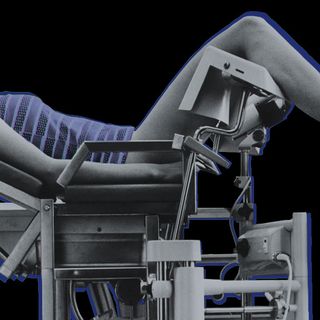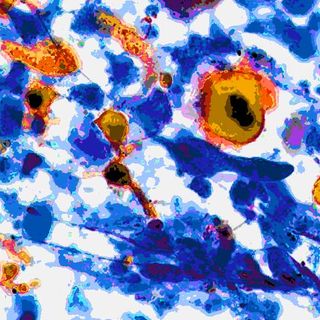
Study: No Link Between Autism and Prenatal Whooping Cough, Tetanus Vaccine
Let’s put this tired myth to bed.

Even though the myth that vaccines can cause autism has been thoroughly debunked, the fear persists. And pregnancy is a vulnerable time when women want to minimize even the tiniest risks. Rest assured: a new study has confirmed the prenatal Tdap vaccine is safe, concluding that taking the Tdap vaccine during pregnancy does not increase the risk of autism spectrum disorder in infants.
In fact, mothers not receiving the Tdap vaccine during pregnancy is far more risky for babies.
“Infants are at the highest risk of hospitalization and death among any population subgroup after contracting a pertussis infection, a highly contagious respiratory disease also known as the whooping cough,” says lead author Tracy A. Becerra-Culqui, PhD, with the research and evaluation wing of Kaiser Permanente, an American health care company. “With waning immunity against pertussis in the United States, it has become very important for pregnant women to be immunized against pertussis. It is an immunity they pass on to their unborn baby.”
Diptheria and tetanus have both seen an uptick in India in recent years. And while exact numbers on the prevalence of pertussis, or whooping cough, are unknown, according to a position paper published in Indian Pediatrics “the disease is widespread” and “a major public health problem.” The same paper recommends pregnant women receive the Tdap vaccine in their third trimester. “Tdap has to be repeated in every pregnancy irrespective of the status of previous immunization (with Tdap),” the authors state.
The team behind the new study examined the link between the vaccine and autism by analyzing patient data of nearly 82,000 children born between January 2011 and December 2014. They found an autism spectrum disorder rate of 1.5% in children whose mothers received a Tdap vaccine during pregnancy, while unvaccinated mothers’ children had a 1.8% incidence rate. Similar results were seen across other birth cohorts, which means autism is not a side effect of receiving the Tdap vaccine pregnant.
“Given the increasing practice to vaccinate pregnant women with Tdap vaccine, it was important to address the concern of a link between maternal vaccination and subsequent development of autism spectrum disorder in children,” says Hung Fu Tseng, PhD, also of Kaiser Permanente’s research and evaluation team. “We hope that our findings reassure parents that Tdap vaccination during pregnancy was not associated with autism in children.”
Related


Study: Awareness, Availability of HPV Vaccine Does Not Increase Risky Sexual Behavior in Teens
